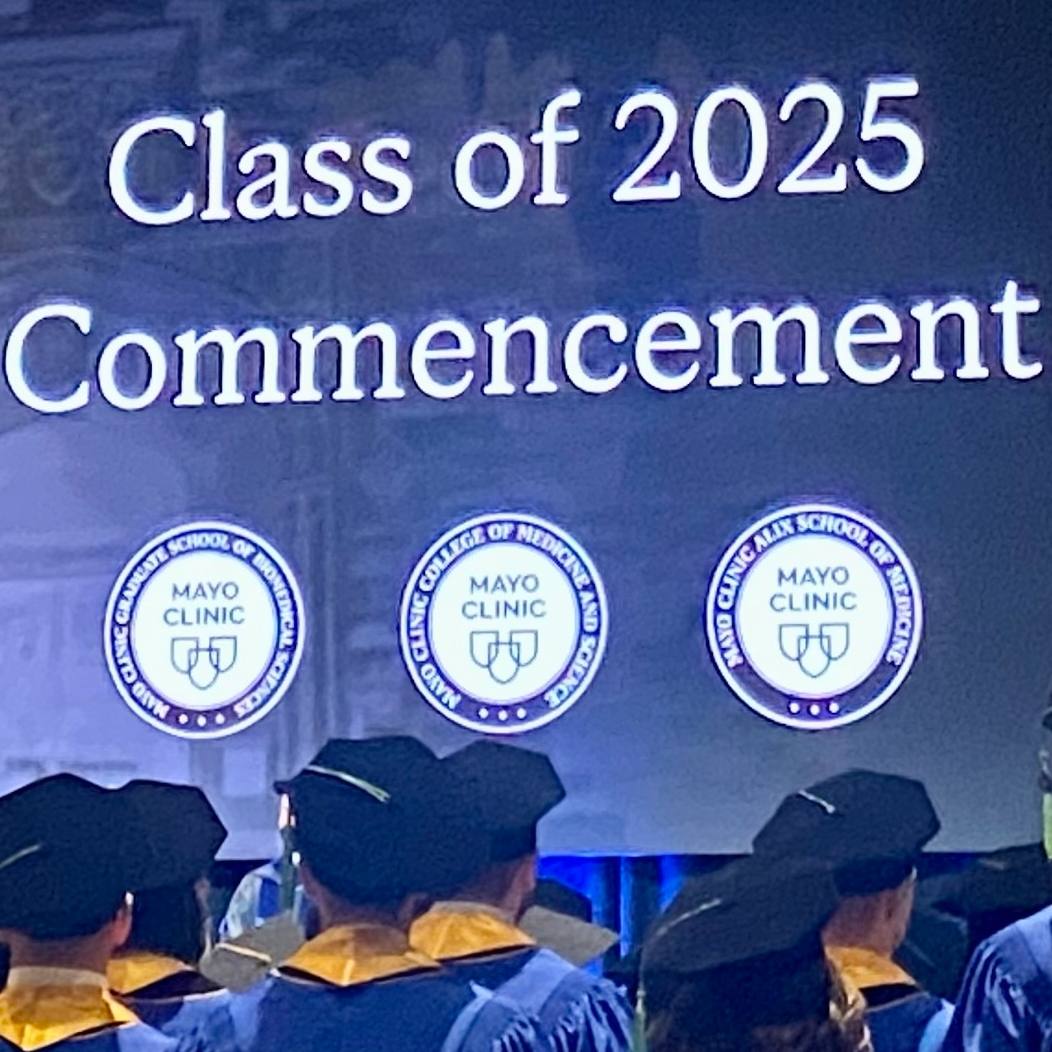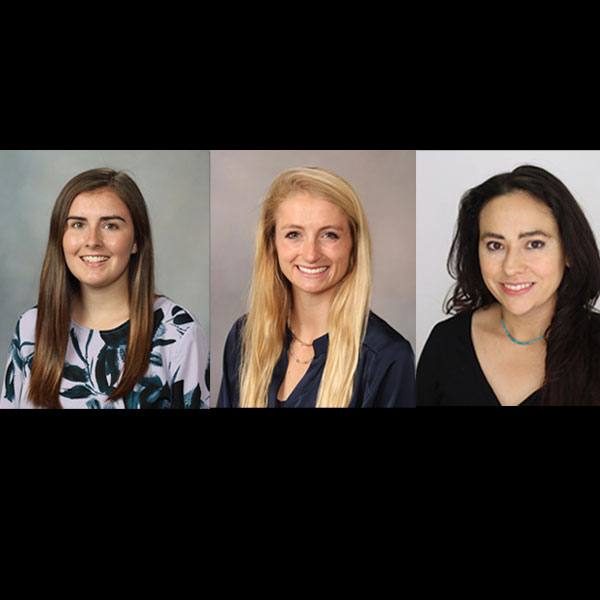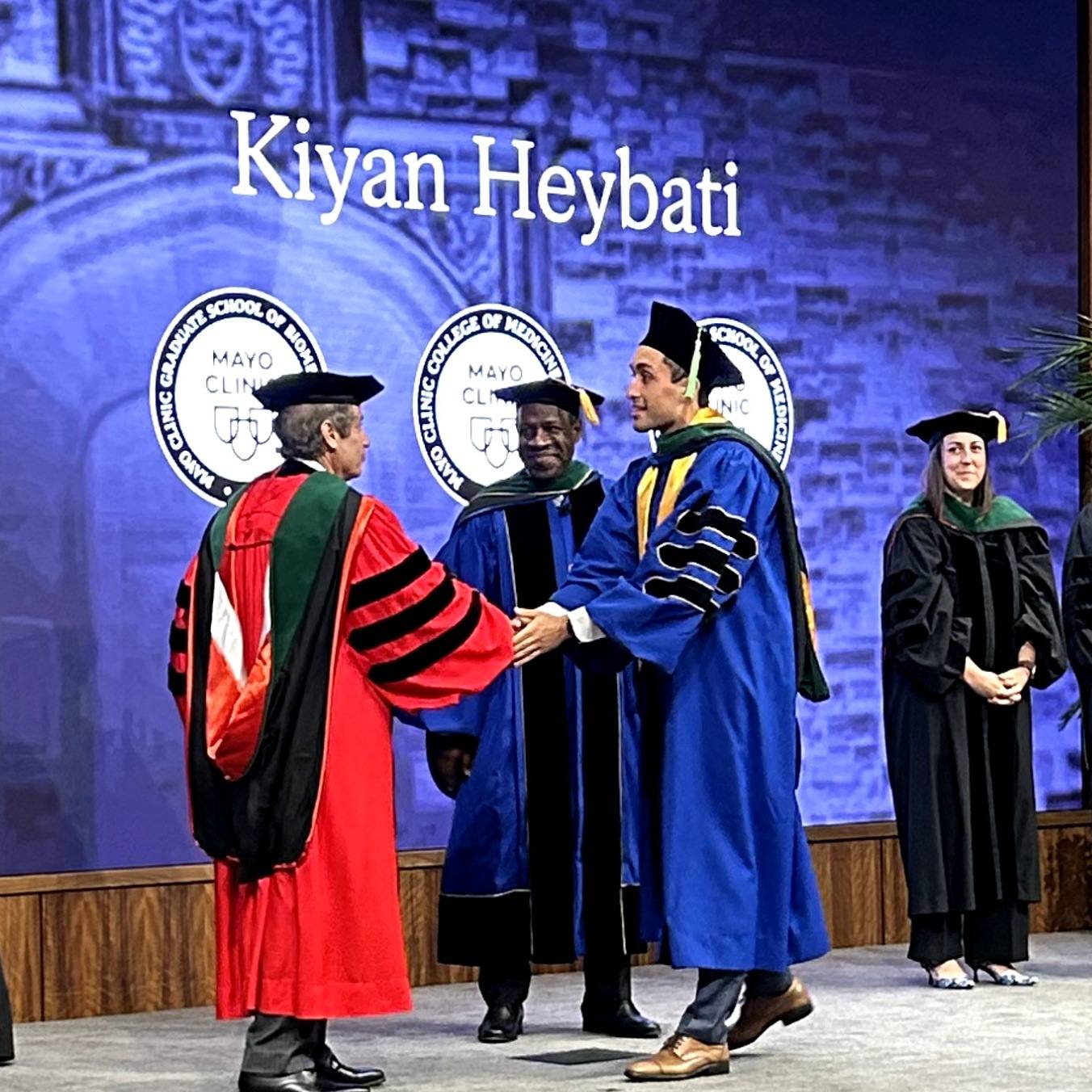-
Accommodating the Brightest Minds
You never know where the next great idea will come from, so it is important that talented individuals are given the opportunity to contribute. To that end, Mayo Clinic is committed to engaging the brightest minds, no matter what.
Anna Krauss and Jes Pinkney are two examples of Mayo Clinic’s commitment to that pledge, which supports a diverse and inclusive future workforce.

Krauss and Pinkney are the first students who are deaf to participate in the Summer Undergraduate Research Fellowship (SURF) program at Mayo Graduate School.
This 10-week experience immerses students in a research, participating in real-world projects alongside top researchers in state-of-the-art labs. The program draws 130 of the top students in the country each year to Mayo Clinic.
Jes Pinkney
Pinkney has always loved learning. Growing up, she enjoyed school more than anything and preferred learning over candy. She began losing her hearing in 2014 and started learning American Sign Language (ASL).
With a love for languages, she went to Brown University planning to study international relations. This plan was thrown off track when she realized there was another subject she loved – neuroscience. Pinkney began reading on her own about neuroscience and was fascinated by research.
Pinkney spent her summer at Mayo Clinic working on spinal cord regeneration in zebrafish.
Anna Krauss
Krauss became deaf at the age of nine. She was the first and only deaf student in the mainstream classes at her school. At 12 she began using ASL as her primary method of communication, and began working with an interpreter in class.
“Once I had a sign language interpreter, I started getting so much more information,” says Krauss. “When I’m able to get the information, it is so much easier to learn.”
Now a senior at the Rochester Institute of Technology in New York, she is studying biotechnology and molecular bioscience. Krauss was recruited to Mayo Clinic out of the Entry Point program. The program, sponsored by the American Association for the Advancement of Science, identifies and recruits students with a disability who are studying science, engineering, mathematics, and computer science for internship opportunities.
Krauss spent her summer characterizing zebrafish models of human deafness at Mayo Clinic.
Balancing Independence and Support
Mayo Clinic worked with both students to remove barriers, both in the lab and socially.
“It has been fantastic because Mayo has given me interpreters,” says Krauss. “There was no battle for that. I’m just floored by the accommodations and willingness to work with me.”
In the past, Krauss found that some labs were not comfortable with an interpreter around at all times, and others did not have the space to accommodate another person. Although Krauss acknowledges that two interpreters in the lab may not be ideal, it has made her success possible.
“Here, at Mayo, I got the right interpreters that were the right fit for me,” says Krauss. “When I get all the information I pick things up so quickly and I start coming up with my own ideas. There aren’t challenges when I have full access to information.”
What amazes Pinkney is the independence she has been afforded at Mayo Clinic. She has two interpreters with her throughout the day, but that is the only thing that sets her apart from the other students. It is that balance of support and independence that has set Mayo Clinic apart in her mind.
“Here they want you to be independent, but they also want to support you,” says Pinkney. “They understand that you know what is best for you and you know what you need to be successful.”
A Culture of Inclusion
Dennis Mays, Ph.D., a program manager at the Mayo Clinic College of Medicine Office for Diversity, played an integral role in the students’ experiences this summer. He, along with staff in Student Services, made sure that Krauss and Pinkney had everything they needed to succeed.
Dr. Mays approached the leadership of the Mayo Clinic College of Medicine to see what accommodations could be made. But it took a team to bring the effort to fruition. From the Center for Clinical and Translational Sciences, to student services, legal consultants, physician mentors, and interpreters from Keystone Interpreting Services, Mayo Clinic worked to provide Krauss and Pinkney with a valuable experience. Resources were approved, and the additional cost of interpreters was covered by the College of Medicine.
For Dr. Mays, the costs were outweighed by the upside of a more diverse student body, which has benefits for both business and society in general, and Mayo Clinic specifically.
“We learn just as much from them, as they do from us,” says Dr. Mays. “We are a better and smarter team because of Anna and Jes. They each bring a unique experience, giving us a diversity of thought.”
Takeaways
While Krauss and Pinkney came in expecting to learn about research methods and science, they came away with much more.
“Mayo has been really supportive for me and helped me grow as a scientist and also as a person,” says Pinkney. “Advocating for myself is something that I learned here, which I didn’t expect to happen.”
For Krauss, this summer helped her realize that her experience could benefit not only herself, but others around her.
“Often times deaf people are told they can’t do things,” says Anna. “I have so many friends that give up because it is so hard to be deaf and have a career. It is hard for deaf people to excel, but it is possible. I want to be a model for that.”
The Future
Pinkney hopes to pursue an M.D. and Ph.D. program in neurosurgery. She wants to continue research, while having both the scientific and physician perspectives.
Krauss eventually hopes to become a science professor for deaf students. She says her experience in the SURF program has reshaped her future and pushed her to excel.
“My experience this summer showed me that there is a bigger world out there,” says Krauss. “I was planning on staying in Rochester, NY after I graduate because I’m comfortable and happy there. But, do I want to be comfortable or do I want to be amazing?”
-Katie Cottam, August 30, 2016







